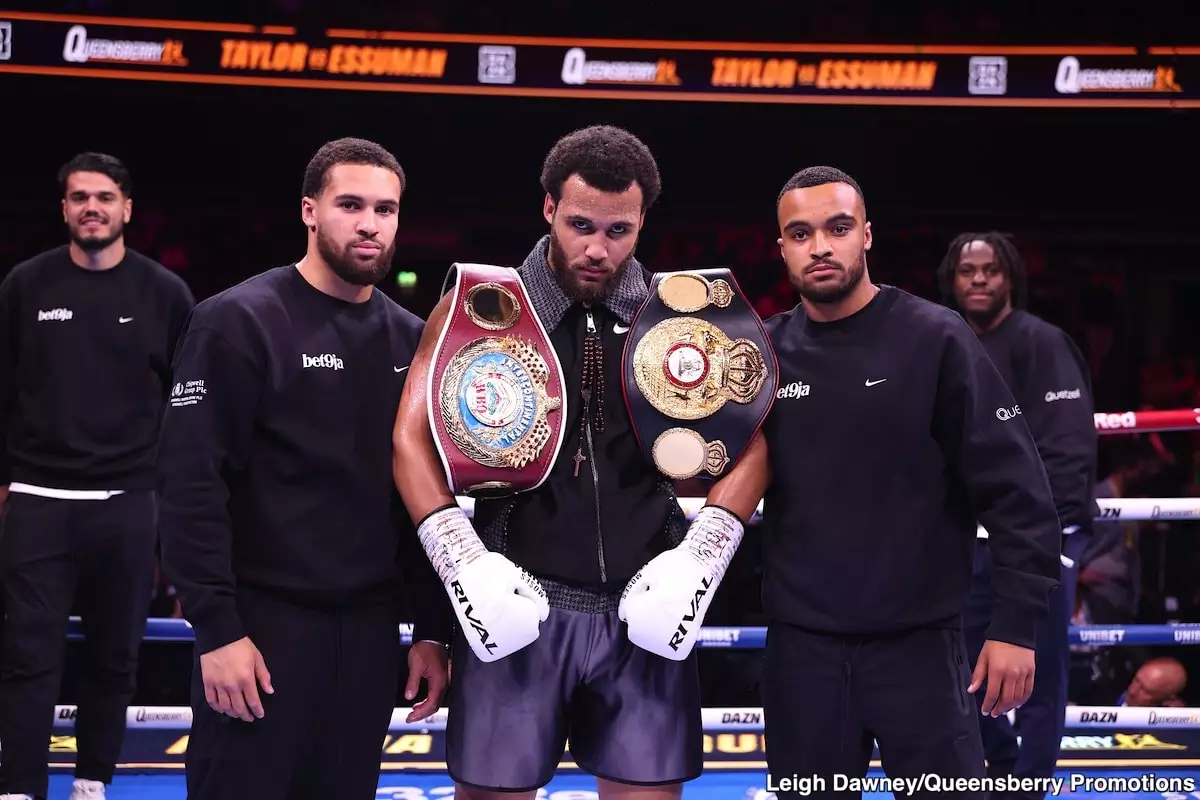In a whirlwind of excitement and scrutiny, Moses Itauma’s ascent to the #1 ranking in the WBO heavyweight division has ignited debate among boxing fans and analysts alike. The 20-year-old fighter, boasting a record of 12 wins with 10 knockouts, recently secured a second-round knockout over the seasoned Mike Balogun at the SSE Hydro in Glasgow, Scotland. Despite this impressive victory, a critical eye reveals that Itauma’s path to the top has been anything but conventional and raises serious questions about the legitimacy of the WBO’s ranking decisions.
For a newcomer to the professional scene, Itauma’s achievements thus far are commendable; he is unquestionably a fighter with skill and potential. However, the stark reality is that his best victories include Balogun—who, at the age of 36, bears the weight of a lackluster record with minimal notable fight history—Demsey McKean, who comes off a knockout loss after a year-long hiatus, and Mariusz Wach, a 45-year-old journeyman. This raises the issue: should such wins be sufficient to warrant a #1 ranking? Many argue they should not.
Critique of Oversight in Rankings
Critics are rightfully questioning the rationale behind the WBO’s decision to elevate Itauma to the upper echelons of the heavyweight rankings. Historically, rankings are built on a combination of skill, experience, and a track record of challenging opposition. One could argue that being placed at the top of the list without having faced any credible contenders equates to jumping the queue in a sport that prizes hard-fought battles and well-earned recognition. The validity of Itauma’s record comes into play here. His recent matches, characterized by questionable competition, may not reflect the true caliber of his abilities.
Indeed, asking for matchups against fighters like Agit Kabayel, Martin Bakole, or Filip Hrgovic would serve to provide a clearer picture of Itauma’s capabilities. Instead, boxing enthusiasts are left with a sense of dissatisfaction, feeling that the WBO has rushed to spotlight a fighter who has yet to prove himself against worthy opponents. There’s something disheartening about promoting a fighter on the back of untested adversaries who have not demonstrated the requisite resistance or skill to test him in a meaningful bout.
The Hype vs. Reality of Itauma’s Statements
Itauma himself seems cognizant of the concerns surrounding his rapid rise, highlighting his intent to step up competition in his upcoming fights. Yet, his eagerness to achieve great things sounds almost naive at times. Statements about being willing to take on seasoned veterans or even venturing to fight in America carry a weight of ambition, but they also create an echo of overconfidence. “I might beat Martin Bakole, but he’s still a solid operator,” he admits, recognizing the challenges ahead. Still, this acknowledgment begs the question: is Itauma ready to tackle those challenges, and should he have been granted such lofty status before proving himself?
The fear is that the hype might not accurately reflect the reality of his capabilities. Comparisons can be drawn to his brother, Karol Itauma, who initially dazzled audiences with striking performances but faltered when faced with more competitive opposition. Will the same fate await Moses when he eventually steps into the ring against truly formidable opponents, or is he simply a product of favorable matchmaking designed to enhance his profile?
A New Era or a Misguided Elevation?
Gustavo Olivieri, the WBO president, proclaimed that Itauma’s electrifying performances will usher in a “new star” in the heavyweight division. This notion is enticing and certainly sells the narrative of rising talent. However, if Itauma is not adequately tested in the ring, his perceived stardom runs the risk of being an artificial construct poised to crumble at the first sign of genuine opposition.
The boxing community is buzzing with speculation and concern, understanding that the sport thrives on authenticity and genuine skill built over time. As Itauma prepares for his next moves, both the boxing world and the WBO must reckon with the implications of rushing a talent into the spotlight without the structure of rigorous opposition to back it up. If taken seriously, the problems of this hasty ascent could threaten not only Itauma’s career but also undermine the foundational principles of what makes boxing a revered sport.

